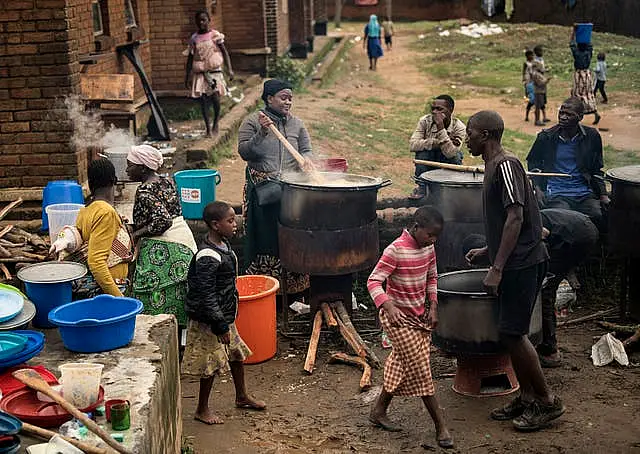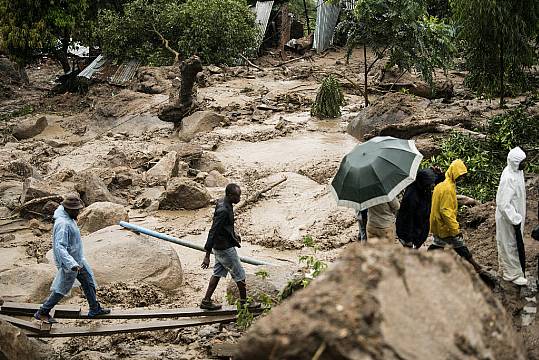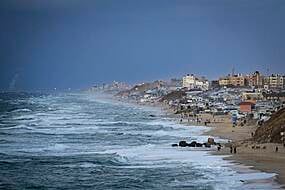Devastated communities and relief workers in Malawi and Mozambique are confronting the aftermath of Cyclone Freddy which has left more than 250 people dead after four days of destructive wind and rain.
Freddy dissipated over land late on Wednesday, but tens of thousands have been displaced and weather monitoring centres warned that countries are still vulnerable to flooding and landslides.
At least 225 people have been killed in southern Malawi, including in the financial capital of Blantyre, officials said. Around 88,000 people are still displaced and parts of the region remain inaccessible.

President Lazarus Chakwera has declared a 14-day national mourning period.
In Mozambique, authorities said at least 53 had been killed since late on Saturday, with 50,000 more displaced.
Mathew Pickard, regional director for southern Africa at the aid organisation Care International, said: “Roads and bridges have been swept away, cutting off communities from much-needed support. Houses and homes have been destroyed, leaving families stranded and out in the cold. As rescue efforts continue, the death toll is anticipated to rise.”
In Malawi, where a cholera outbreak was already ongoing when Freddy ripped through the country, deaths from the disease and other water-borne illnesses are also expected to rise.
“We’ve been without running water for the past four days and water will become contaminated,” said Andrew Mavala, executive director of the Malawi Network for Older Persons. “This is a huge concern.”
Hundreds of people have been moved to camps but food and clean water is still scarce, he added, with dozens of older people who do not know how they will recover.

“There’s a feeling that they’ve lived their lives and we must prioritise the young. But they must be helped and treated with dignity,” he said.
Freddy is “very massive in terms of health disruption”, said Ahmed Ogwell, acting director of Africa’s Centre for Disease and Control Prevention.
He warned there is “every likelihood we may see cross-border spread” of cholera, which already has outbreaks in Mozambique and Malawi. Both countries recorded more than 3,000 new cases in the past week.
Scientists say human-caused climate change has worsened cyclone activity, making them more intense and more frequent.
The recently ended La Nina that impacts weather worldwide also increased cyclone activity in the region in recent years.
Freddy has caused destruction in southern Africa since late February, when it pummelled Mozambique as well as the islands of Madagascar and Reunion.
The storm first developed near Australia in early February and travelled across the southern Indian Ocean before it bounced around the Mozambique Channel.
The UN’s weather agency has convened an expert panel to determine whether it has broken the record for the longest cyclone in recorded history, which was set by 31-day Hurricane John in 1994.







